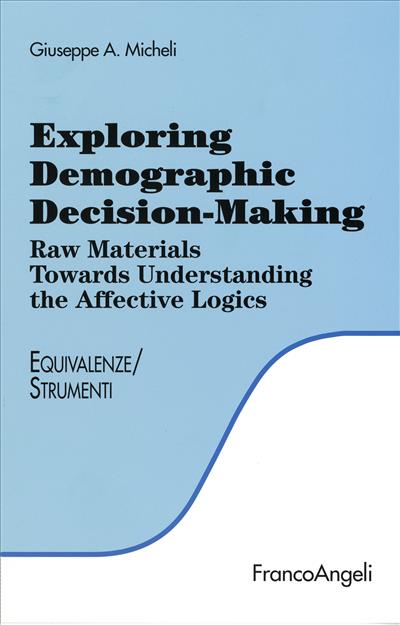
Exploring Demographic Decision-Making
Raw materials towards understanding the affective logics
Pages: 208
ISBN: 9788846480804
Edition: 1a edizione 2006
Publisher code: 570.1.2
Availability: Discreta

Pages: 208
ISBN: 9788846480804
Edition: 1a edizione 2006
Publisher code: 570.1.2
Availability: Discreta